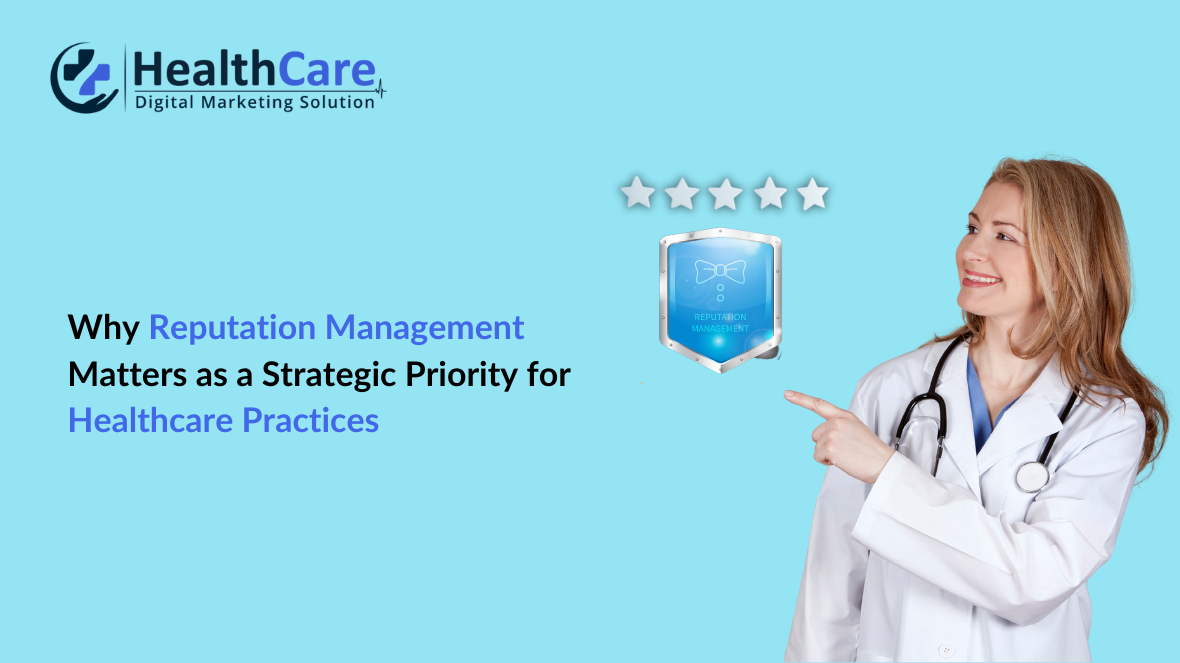


In the ever-evolving healthcare landscape, reputation management has emerged as a cornerstone strategy for success. Patients today are empowered with the internet, using it to form opinions, select providers, and share experiences. For healthcare practices, managing reputation effectively can influence patient trust, retention, and overall business growth. Here's a closer look at why healthcare reputation management is indispensable and how to implement it effectively.
How Reputation Management Influences Patient Perceptions and Choices
Reputation management directly impacts how patients perceive a healthcare practice. Online reviews, ratings, and testimonials are often potential patients' first point of contact. A positive reputation creates trust and attracts new patients, while negative feedback can deter them.
For instance, a patient looking for a new provider might choose a practice with glowing reviews over one with mixed or few reviews. 73% of patients prioritize online reviews when choosing a provider, as these reviews influence their initial choices and foster loyalty. Patients are more likely to return to a provider they trust and respect.
Key Components of Effective Reputation Management in Healthcare
Effective reputation management requires a comprehensive approach. Here are the core components:
Monitoring Online Reviews
It is essential to stay updated on patient feedback across platforms like Google, Yelp, and Healthgrades. Monitoring these platforms allows healthcare practices to understand patient sentiments and identify areas for improvement. Tools like review aggregators can simplify the process by consolidating feedback from multiple sources.
Engaging with Patients
Responding to all positive or negative reviews is a critical part of engagement. Showing empathy and professionalism in responses addresses patient concerns and demonstrates that the practice values patient feedback.
Transparency
Openly addressing complaints builds credibility. Patients appreciate honesty and a proactive approach to resolving issues. This transparency can turn a potentially damaging review into an opportunity to showcase the practice's commitment to improvement.
Proactive Feedback Collection
Using surveys to gather direct patient insights ensures that practices receive actionable feedback. This proactive approach allows healthcare providers to address issues before they escalate and enhances patient satisfaction.
Using Feedback to Enhance Patient Care Standards
Reputation management goes beyond responding to reviews; it's about leveraging feedback to improve patient care. By analyzing patterns in patient feedback, healthcare practices can identify recurring issues and implement targeted solutions. For example, if multiple reviews highlight long wait times, practices can reassess scheduling processes to enhance efficiency.
Elevating care standards based on feedback improves patient experiences and strengthens the practice's reputation. Patients are likely to notice and appreciate visible efforts to address their concerns.
Connecting Online Reputation with Patient Loyalty in Healthcare
A strong online reputation directly correlates with patient retention. Satisfied patients who see their feedback addressed are likelier to remain loyal to a practice. Additionally, they are more inclined to recommend the practice to others, creating a cycle of trust and growth.
Conversely, neglecting reputation management can lead to patient dissatisfaction and attrition. Practices that fail to engage with their online presence risk losing patients to competitors, prioritizing reputation management.
Conclusion
Reputation management is not just a marketing tool; it's a strategic necessity for healthcare practices. By shaping patient perceptions, addressing feedback, and linking online reputation to retention, practices can build trust, improve care standards, and foster long-term growth. In today's competitive healthcare environment, an effective reputation management strategy is key to standing out and succeeding.